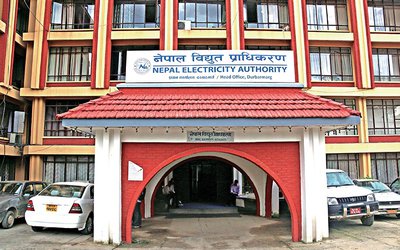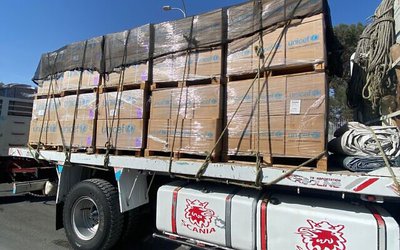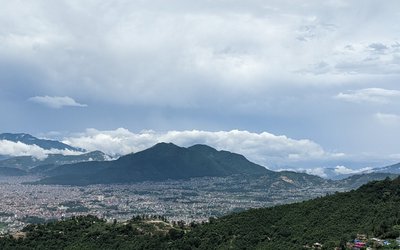Nepali Kangress would have lost its registration with the Election Commission and become illegal if the provisions of the 2015 constitution had not been amended as a last minute compromise to allow parties to delay their obligatory once-in-five-years party convention by six more months. The UML and the Maoists were thus able to use that lapse by Kangress party managers to bend the Kangress to their will and force it to acquiesce into passing the new constitution despite the reservation many Kangressis had with what went into it. One may ask how a Grand Old Party that claims to be the harbinger of major political changes of the last three quarters of a century and of many more into the future but which cannot even hold in time its own mandatory convention (forget elections of its sister organizations) can lead the country to anywhere. Well, that long-awaited convention is over, and the election for new office bearers has thrown up a few surpriseswhich has elated some loyal supporters with hopey-changey euphoria: will the Kangress regain its old lost soul?
The first message that came across after the votes were counted is the major setback to the pro-Mughlani panel of Krishna Sitaula, the faithful Girija sidekick widely held to be the prime agent implementing the 12-point Delhi Deal of 2005. It happened with the panel’s defeat not just by Sher Bahadur Deuba for party chief but more importantly by the election of ShashankKoirala for general secretary. The latter had given a BBC interview before the elections saying that the Kangress essentially made a mistake going along with the Maoist agenda of republicanism, secularism and federalism, and that monarchy could be restored if the Nepali people so wanted it. That the party faithful still chose him decisively is a definite indication that the undercurrent of resentment within the Kangressi rank-and-file against the Delhi- and Madheshi-deal by Girija is strong.
The other message to come across is that the average Kangressi is unhappy with the doing away ofecumenical democratic values enshrined in the 1990 constitution and having them replaced with Maoist and communalist values of ethnic federalism. It is whispered among Kangressis that when some sane leaders sought to impress upon Girija that federalism was a dangerous and un-implementable idea, Girija is supposed to have assured them that it would only mean readjusting a few district boundaries. The Kangressi elections give the clear message that, together with an increasing number of Nepalis across the country, Kangressi rank-and-file too are opposed to ethic federalism. And when KhumBahadurKhadka, an avowed protagonist for restoring Nepal’s Hindu identity garners practically the highest number of votes, what does it not say about that base opposition within the Kangress to the political mess spawned by the 12-point Delhi Deal?
There are a slew of political sins that the Kangress will have to atone for if it is to “lead” and show to the Nepali voters that it is not just a political sidekick to the communists but different from them in values and policies. One sin that stretches back to the early 1990s is when it gave up socialism and took up crony capitalism and right-wing neo-liberalism with the zeal of the recent convert. This may not look so cardinal an offence when its main rivals, the UML and the Cash Maoists have both overtaken the Kangress on this front; but without clarifying what “BP’s socialism” it still swears by is in the current global context (where Jeremy Corbyn in the UK, Bernie Sanders in the US and Alexis Tsipras in Greek are reviving socialist politics with great success), Kangress will not be able to distinguish its brand of politics from its rivals.
If crony capitalism of the 1990s was bad, things took a worse turn in 2002 with the internecine fighting between its Girijangress and Deubangress factions and the former took the lead in selling the Kangressi soul to the Mughlani-tutored Maoists. After all, it was Girija who diverted his flight unannounced from Beijing to Delhi and under the patronage of Mughlani intelligence, secretly met the insurgent Maoists, even while his own party’s prime minister Sher Bahadur Deuba was valiantly fighting them. When the party split over the need to fight the Maoists seriously by declaring a national emergency and Deuba dissolved the dysfunctional parliament – a fundamental right of the prime minister under the Westminster model that was supported by the main opposition UML and other parties – the Girija faction threw all parliamentary democratic values to the wind by demanding its resurrection.
If Deuba needs to be faulted for anything, it is that he succumbed to political immorality by agreeing to return to the resurrected parliament in 2006 even though its voter-given mandate of five years had long expired. It was akin to taking back a discarded potty from scrap heap, cooking rice in it and eating it. The elections that the Kangress convention just saw are an expression of the queasiness felt by all its grassroots membership. The only Kangressis who managed to sustain some political morality were the former prime minister KP Bhattarai elected from Birganj and PL Singh elected from Kathmandu who refused to step into that resurrected but haunted house. More undemocratic steps were to follow: that no-longer-elected, date-expired body eventually became even more undemocratic when it brought in as members a slew of never-elected Maoists. They still had arms and armies, had not and have not yet given up violence as the tool of coercive politics, and who eventually brow-beat others and steamrolleredthrough their agenda of republicanism, secularism and federalism. The jumbo constituent assembly that was eventually twice elected – and continues to live on as a re-defined parliament even after the passage of the new constitution where there is no provision for so many MPs – never openly debated any of the controversial issues now plaguing the nation. They were, and are, a mere rubber stamp body to a handful of big party oligarchs who in turn were beholden to foreign interests.
The price of the Faustian bargain that Girijangress entered into in 2005 with Mughlani spooks and the Maoists – and Deubangressis supinely surrendered to – is the total lack of any open democratic debate on political issues within the Kangress party, only festering resentment that erupts in unexpected factionalisms. While the Mughlani agents might have been sidelined, they are far from removed; and while Deubangressis sidelined previously by the Girijangessis may be in a majority, they have hardly begun to take the steps necessary to reclaim the moral high ground.
To do so they must openly debate and explain: why and for what sins was KP Bhattarai removed as prime minister when it was under him that the Kangress won a majority in the third parliament (that was resurrected illegitimately in 2006)? Why did KP Bhattarai and Ganesh Man Singh leave the party, the former even publicly writing that the Kangress had become ‘nakkaliranirarthak’ (fake and meaningless)? Why was the role of the state in development done away with in order to favour crony capitalism and neo-colonialism a la granting of hydro sites for export bypassing the parliament and the constitution when the country reels under power cuts? Why did it give away Upper Karnali and Arun-3 sites for export when it should have been developed for Nepal’s needs? Why is the Mahakali treaty still impossible to implement even two decades after its signing with much fanfare about ‘the sun rising from the west’? Why did Kangress pursue the policy of de-industrialization of Nepal and the export of its youth as labour to the Gulf countries?
There are many, many such questions staring the Kangress in the face. Does it have the courage to admit them honestly without lowering its eyes in shame? If it does, then only will the Kangress be on the road to reclaiming its liberal democratic soul.

Dipak Gyawali
Gyawali is Pragya (Academician) of the Nepal Academy of Science and Technology (NAST) and former minister of water resources.
- Behind Nepal’s Political Instability: Flaws In Loktantra’s Ethical Foundation
- Jul 15, 2025
- Navigating An Uncharted, Unravelling World Order
- Jun 19, 2025
- Overcoming Indo-Pak Conflict The Dara Shikoh Way
- May 13, 2025
- Re-Thinking Democracy: Why South Asians Are worried
- Mar 17, 2025
- Nepal’s Governance Mired In Endemic Corruption
- Feb 20, 2025














